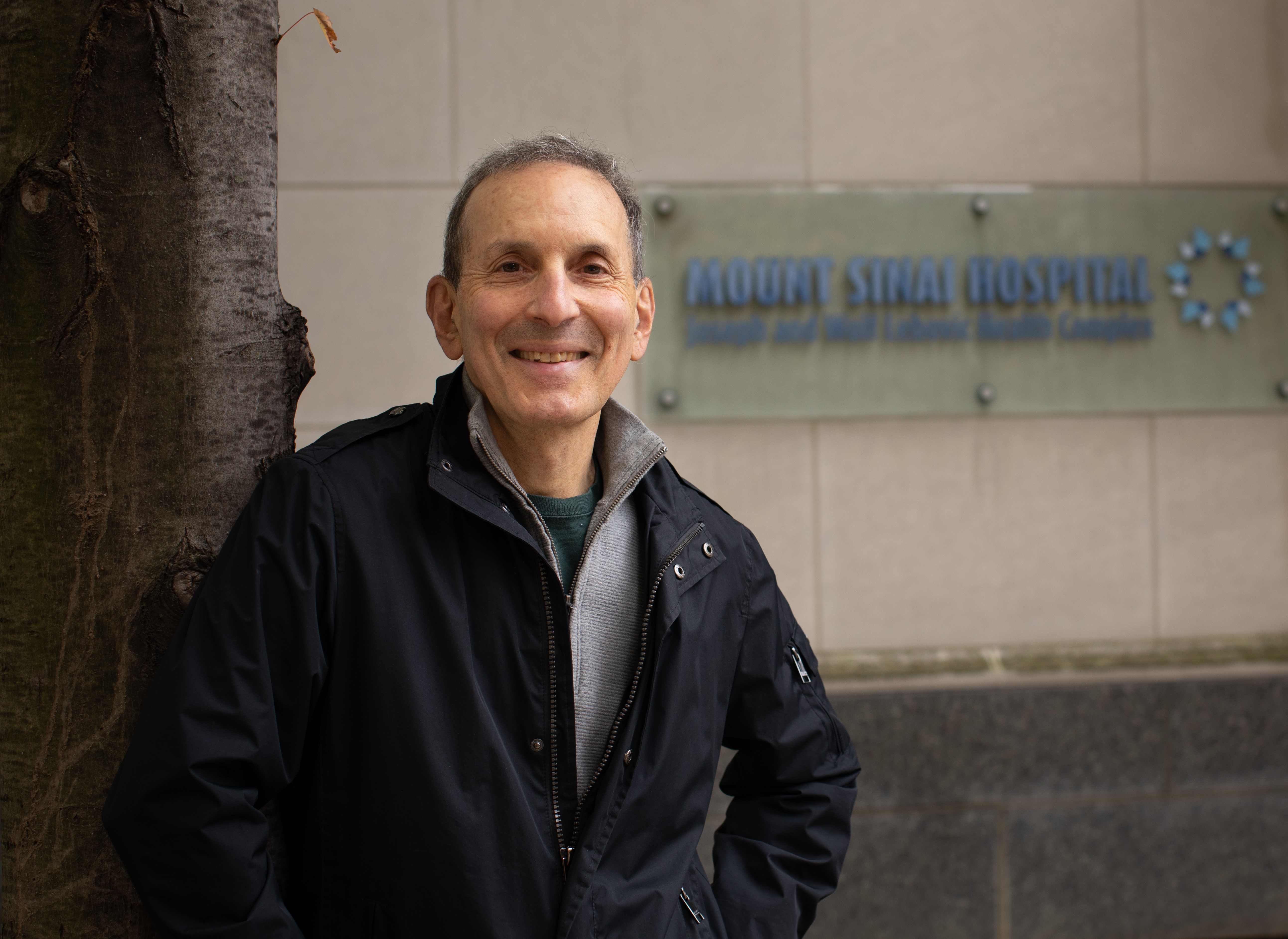Main Second Level Navigation
- Welcome
- Why Toronto?
- History of the Department
- Vision & Strategic Priorities
- Our Leadership
- Our Support Staff
- Location & Contact
- Departmental Committees
- Department of Medicine Prizes & Awards
- Department of Medicine Resident Awards
- Department of Medicine: Self-Study Report (2013 - 2018)
- Department of Medicine: Self-Study Report (2018 - 2023)
- Communication Resources
- News
- Events
Insulin 100 Symposium Draws World Experts in Diabetes Research and Care

Jim Oldfield

These are a few questions that diabetes experts from around the world have answered since January, in a series of online educational presentations celebrating the 100th anniversary of the discovery of insulin at the University of Toronto.
The presentations are free and available now to anyone who registers for the University’s Insulin100 Scientific Symposium, which will culminate in live online panel discussions on April 15 and 16.
More than 4,500 people have registered for the symposium, which focuses on management of diabetes and its complications, tips for improving patient care and translation of recent research into practice.
 “It’s gratifying to see the interest, which has really come from around the world,” said Daniel Drucker, chair of the symposium organizing committee who is a professor in the department of medicine at the Temerty Faculty of Medicine, and a senior investigator in the Lunenfeld-Tanenbaum Research Institute at Sinai Health.
“It’s gratifying to see the interest, which has really come from around the world,” said Daniel Drucker, chair of the symposium organizing committee who is a professor in the department of medicine at the Temerty Faculty of Medicine, and a senior investigator in the Lunenfeld-Tanenbaum Research Institute at Sinai Health.
“It was a bit disappointing to go virtual after years of planning, but the upside is we’re reaching thousands, not hundreds.”
Drucker said word-of-mouth on the recorded presentations has been positive, with many people expressing appreciation for the brevity of the talks — they average about 25 minutes — and their delivery by global experts.
The journal of the European Association for the Study of Diabetes, Diabetologia, has selected 13 of the speakers to write review articles and is posting them with links to the Insulin100 videos.
The live discussions will feature many of the same speakers, with each panel moderated by a U of T faculty member and a trainee.
Topics on day one will include the discovery of insulin, advances in beta cell and islet autoimmunity, and the use of insulin in the real world — the latter hosted by Temerty Medicine professor Jackie James and featuring four speakers:
- John Buse, a professor and executive associate dean for clinical research at the University of North Carolina School of Medicine, who served as president for medicine & science at the American Diabetes Association.
- Irl Hirsch, former chair of the professional practice committee for the American Diabetes Association, who has studied best practices for insulin therapy and better technology in diabetes.
- Jean Claude Mbanya, a professor of medicine and endocrinology in the Faculty of Medicine and Biomedical Sciences at the University of Yaoundé 1, who is honorary president of the International Diabetes Federation and was chairman of its task force on insulin from 1997 to 2012.
- Hannele Yki-Järvinen, a professor of medicine at the department of Medicine, University of Helsinki, and head of the division of diabetes at the Helsinki University Central Hospital, who studies insulin resistance in patients.
The live event will also showcase young researchers. Four early career investigators will receive awards that recognize and support their work, including Steven Millership, Rebecca Cheung and Grazia Pizza (Imperial College London), Marie Pigeyre (McMaster University) and Aviroop Biswas (Dalla Lana School of Public Health).
Eight postdoctoral fellows and graduate students will present their research and receive awards to fund their studies, including two from Temerty Medicine.
Yasaman Aghazadeh is a postdoctoral fellow co-supervised by Cristina Nostro, associate professor of physiology, and Sara Vasconelos, assistant professor of laboratory medicine and pathobiology.
Saad Khan is the other Temerty Medicine award recipient. He is a fourth-year doctoral student in immunology who studies links among the immune system, inflammation and obesity in metabolic diseases.
Khan and his colleagues recently found that B cells that reside in the gut and liver contribute to obesity-related insulin resistance in mice. He will present these results along with further findings that connect this work to intestinal permeability, pathogenic bacteria and non-alcoholic fatty liver disease in patients.
“The event is a platform to showcase the research I’ve been working on for several years, so I’m excited about that,” said Khan, whose academic supervisor is Daniel Winer, an assistant professor of both laboratory medicine and pathobiology, and immunology at Temerty Medicine with a lab at University Health Network.
Khan said he will attend the live panels on both days and is looking forward to the intensive educational experience they offer, hosted in an appropriate if virtual setting.
“Toronto is a great place for new frontiers in research on diabetes and metabolism, and I love the story of Banting and Best,” Khan said. “As a graduate student and a Canadian, it’s highly motivational.”



